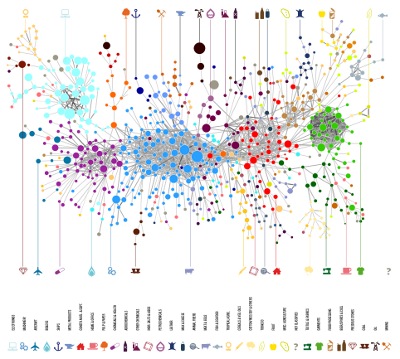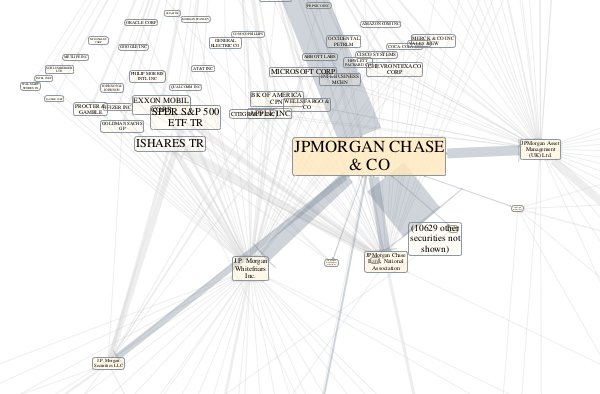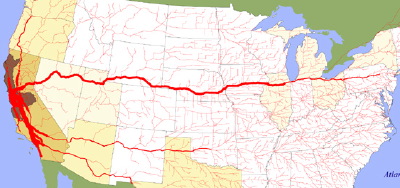Inspired in part by recent work for a client, I finally got around to pulling a long night to play with some Form 13F data from the SEC. This pdf image shows significant ownership relations for J. P. Morgan at the end of 2010. Or at least I think it does. I’d love to hear from anyone who knows more about these types of financial filings.
Continue reading Adventures with J. P. Morgan and Form 13F
Category Archives: small-scale econ
Atlas of Economic Complexity

I just saw this lovely network map of the “product space” of exports (Atlas of Economic Complexity, via Infosthetics). The idea is to reveal what types of products are related to each other in the sense that there are common economic competencies need to produce them.
Economic Flows and Vulnerability
Found this fascinating .gov site that gives visual maps of the freight flows between various cities in the US. Image above is just truck flows from SF/Oakland, but they have for entire states as well. Data is from 1998, most Department of Transportation sources . Also includes similar images for maritime flows and links to commodity flows data sources. Neat to be able to see the distribution network of dependencies connecting the regions like arteries or roots. As if each city extends its transit tendrils to other cities to gather and exchange the “nutrients” (products) it needs to survive.
Continue reading Economic Flows and Vulnerability
Commerce info tracking, etc
Nice idea, building collaborative software for tagging and tracking commercial products. “Network of Integrated Consumer Knowledge” Eugene based software co. http://www.grasscommons.org/
Grass Commons, a 501(c)3 public interest charity, is building pipelines between those who can generate information about products and companies and those who can use that information to build a more sustainable economy and a better world.
Grasscommons seems to have a collaborative relationship with Hooze,
Hooze.org is about collaborating to gather useful, reliable info about the products and companies that are shaping our world.
Hooze is the world’s first public wagging site. Wagging combines wiki and tagging in unique ways so that communities of users can organically develop ways of organizing and presenting information. The combo cards at the bottom of this page are an example of how wagging differs from other tools.


